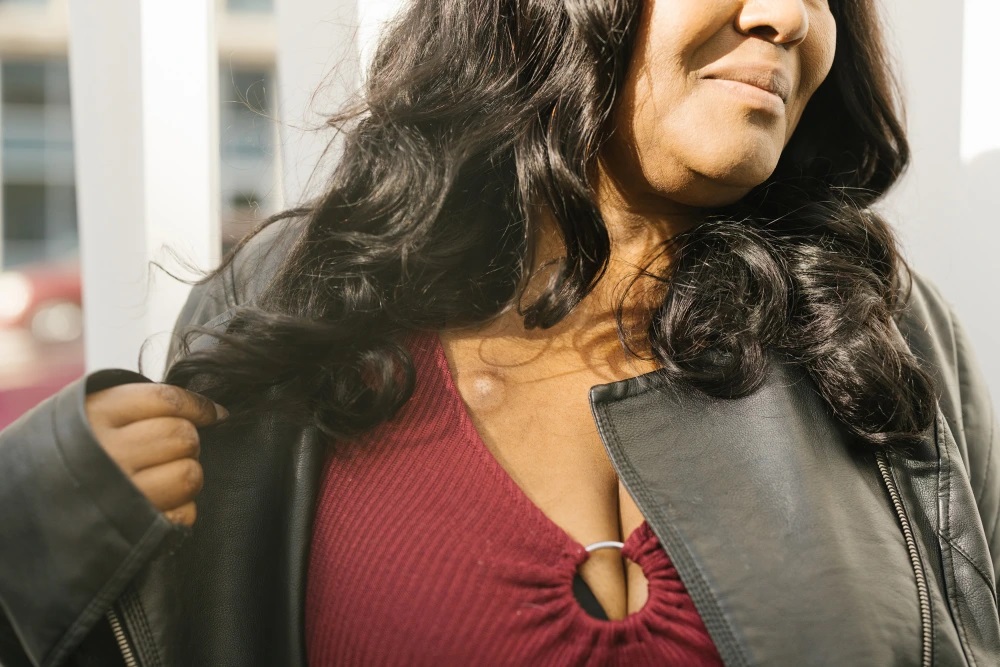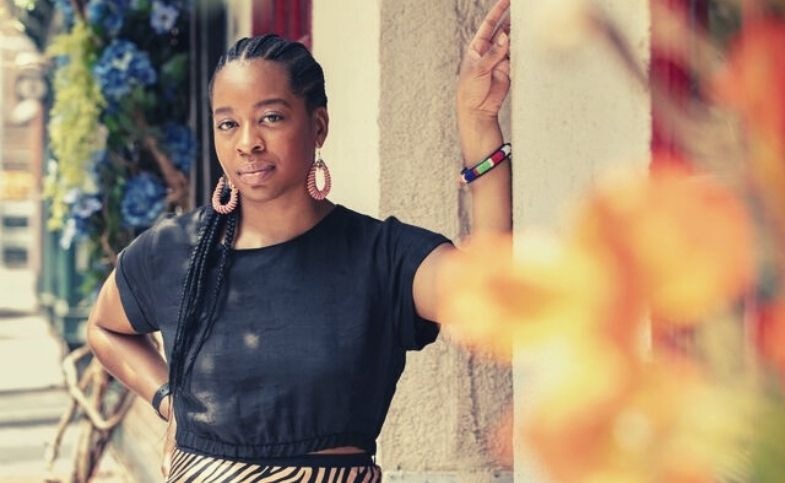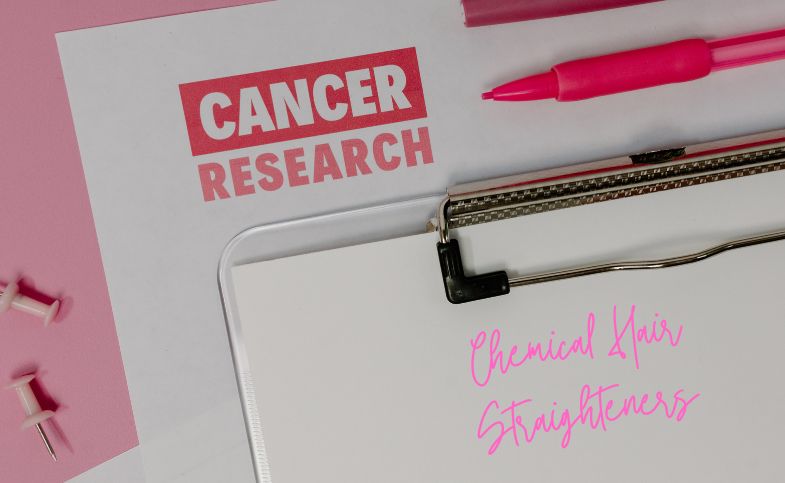Rhonda Terrell was diagnosed with a particularly vicious kind of uterine cancer three years ago, and it has since metastasized to her gut and liver. To combat the condition, she had a radical hysterectomy, which involved the removal of her uterus, cervix, ovaries, and fallopian tubes.
Terrell sobbed, “I don’t like to look at the survival rates.” “Cancer is a terrible, terrible disease.”
Four Black women, including Terrell, have filed federal lawsuits against L’Oréal and other firms, claiming that chemicals in the companies’ hair products caused them to develop uterine cancer or other serious health impacts. Three of the women talked exclusively to NBC News. After a study by the National Institutes of Health was published last month, women who said they used hair straightening products frequently (defined as more than four times in the previous year) were found to have more than twice the risk of developing uterine cancer compared to women who did not use the products.
Three of the women have had a hysterectomy, one as young as 28, according to the claims.
Terrell, 55, of Guin, Alabama, said she began relaxing her hair at age 8 and quit in her late 30s or early 40s. She was diagnosed with uterine carcinosarcoma, went through six rounds of chemotherapy, and went into remission for around two years before the disease reappeared in July and spread to her liver and abdomen, as detailed in an interview and her lawsuit. Today she started chemotherapy.

“If they had a warning on the box to say this could cause cancer, I wouldn’t have used it,” she added. And because I have granddaughters, I feel obligated to make them answer to me.
While using chemical relaxers between the years 1983 and 2015, Bernadette Gordon feels they contributed to her developing breast and uterine cancer. Her lawsuit claims that in 2017 at the age of 44, she was diagnosed with breast cancer and treated with chemotherapy and a double mastectomy in March of 2018. A hysterectomy and six months of treatment and radiation followed her uterine cancer diagnosis in 2021. Springfield, Illinois resident Gordon, 49, became upset as she described the toll that multiple cancer diagnoses and treatments have put on her body and life.
The impact on her life has been “devastating,” she admitted.
All of the women interviewed indicated they had no idea their usage of chemical hair straighteners had raised their risk of cancer until the NIH study was made public.
They claim that the items’ packaging never warned that regular usage increased the risk of uterine fibroids, breast cancer, or other cancers, and that this information is crucial to understanding whether or not the products are at fault in the claims they filed.
Study author and National Institute of Environmental Health Sciences division chief of environmental and cancer epidemiology Alexandra White stressed that their findings did not definitively link hair straightening products to uterine cancer.
She noted that, to her knowledge, this is the first study to suggest a correlation between regular use of hair straightening products and an increased risk of uterine cancer.
Women and their attorneys, however, disagree. Diandra Debrosse Zimmermann, one of the women’s lawyers, has said, “the science is out there that supports our position.”
She claims the research included in the complaints show chemical hair straighteners “are substantial contributing causes and ultimately cause uterine cancer and a number of other conditions.”

Photo: Lynsey Weatherspoon for NBC News
White speculated that a number of chemicals found in hair products, such as dye and chemical straighteners/relaxers, may play a role in increasing cancer risk. She warned that some hair straighteners include chemicals that might cause health problems, including phthalates, parabens, cyclosiloxanes, and metals, and that heating them can emit formaldehyde. An inquiry into whether or not these substances might be included in L’Oréal products went unanswered. The researchers did not inquire about the specific brands or contents of the women’s hair care products.
The National Cancer Institute reports that uterine cancer accounts for only 3.4% of expected new cancer cases in the United States this year. However, uterine cancer rates have been rising, notably among Black women in the United States. According to White, the data showed that Black women were more likely to use hair straighteners than other racial or ethnic groups. The study indicated that the chance of developing uterine cancer by age 70 was 1.64 percent among women who had never used chemical hair straighteners or relaxers, and 4.05 percent among women who used these products regularly.
L’Oréal issued a statement saying they “believe the recent lawsuits filed against us have no legal merit” and that they are “confident in the safety of our products.”
According to L’Oréal, “the highest standards of safety are maintained for all of our products.” Experts do thorough scientific evaluations of the safety of our products and make sure we comply with all local rules in each area where we sell them.
A national trade association for the cosmetics and personal care products industry, the Personal Care Products Council, released a statement in response to the study, which L’Oréal also distributed, stating that the study did not prove that the products or their ingredients directly caused uterine cancer. It also indicates that the FDA has jurisdiction over all cosmetics and the substances used to make them, including hair straighteners and relaxers.
Requests for comment sent to the other defendants in the lawsuits went unanswered. The women are requesting reimbursement for their medical expenditures, legal representation costs, and general damages.
The plaintiffs in these cases are Rugieyatu Bhonopha, 39, of Vallejo, California, and Jenny Mitchell, 32, of Missouri, both of whom had their dreams of starting a family shattered when they were both diagnosed with uterine cancer at the age of 28 and required hysterectomies. It was reported that they, like the other ladies, used chemical hair straighteners because they felt pressure from society and their employers to have straight hair. As more and more women feel confident embracing their natural hair textures, this trend has begun to shift.
Mitchell expressed concern that he would experience the illness once more, but in a different manifestation. Women who have already had uterine cancer may be at an increased risk for developing colon or breast cancer. There are a lot of folks that don’t understand that.
Bhonopha filed a complaint on October 21 alleging that the phthalates and other endocrine disrupting chemicals in the hair care products she used caused her fibroids.
She remarked, “It’s hard to come to terms with the fact that you’re dealing with fibroids, pregnancy loss. You had no idea any of these toxic ingredients were included in the goods, and you had no idea that they were unsafe. You wouldn’t have used them if you had known, of course.
Benjamin Crump, a civil rights lawyer who represents Mitchell and Gordon, has indicated that their lawsuits aim to raise public awareness and remove the items off shelves.
As Crump put it, “it’s about trying to tell every Black and brown parent out there that we should not continue to try to conform to European standards of beauty by having our hair straightened with these chemicals, at the expense of possibly having our uterus destroyed, and not being able to have babies.” Thus, “this is a public health emergency.”












